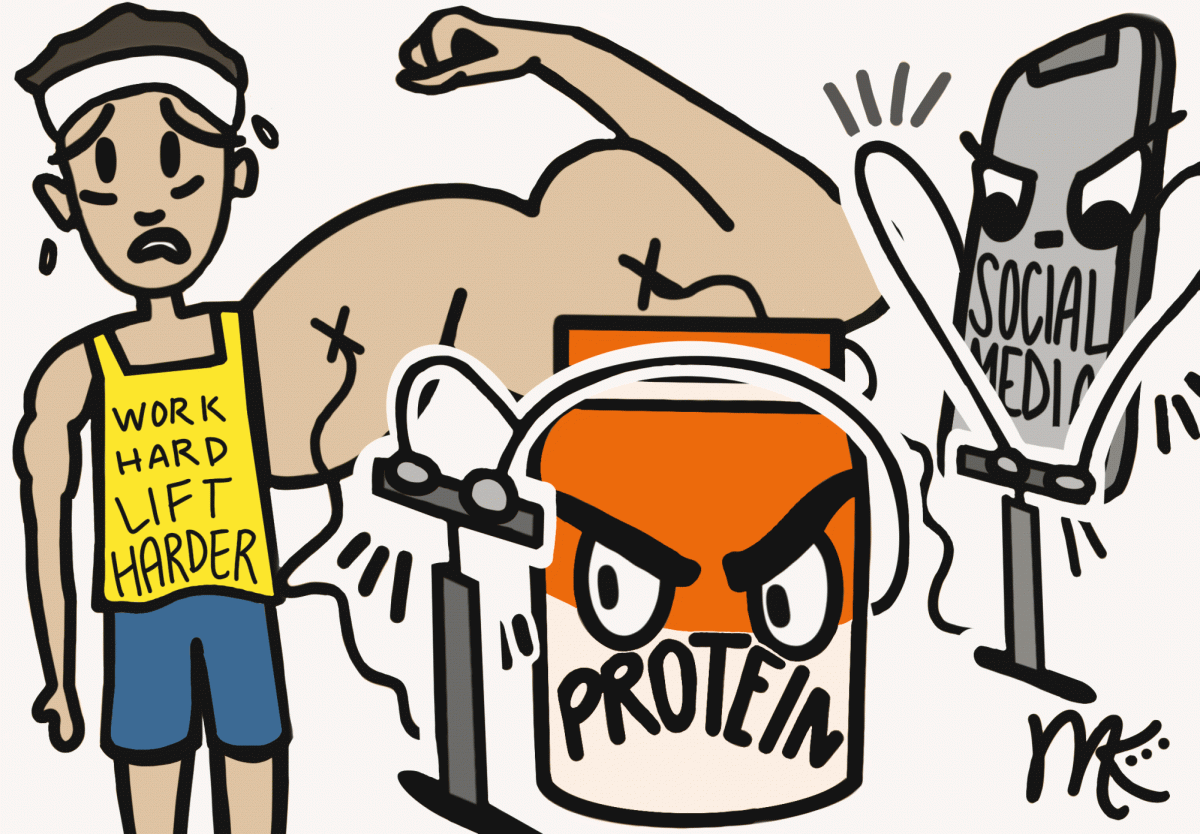Opening Instagram, dozens of strong, chiseled individuals flex through the screen, representing the desires of many adolescents who have those images on the forefront of their minds.
In high school specifically, many teenagers have made working out a vital part of their schedule, endorsed by online influencers, social media, fashion trends and the ever evolving beauty standards. These new standards have installed a new blooming culture of getting ‘jacked’ and hitting the gym.
Around Coppell, this growth manifests across a multitude of gym and workout programs catering to community members of all ages. The community provides amenities so locals can be consistent in working out, going to the gym and gaining mental and physical benefits. According to the Centers for Disease Control and Prevention, working out may increase mental well-being, assist in controlling one’s weight, lower the risk of illness along with strengthening bones and muscles.
However, from talks of personal records and protein intake to the potential social status that people correlate with it, the glorification of the gym aesthetic often reaches unhealthy extremes.
To build muscle and lose weight, topics such as calorie deficits and nutrition become essential for people frequenting the gym. Although these subjects are well-researched, many beginners or adolescents do not explore the potential negatives. As people become captivated by online gym culture and mimic it by enforcing supplemental nutrients and consistent lifting, they do not understand the harm it may cause if not carried out with caution. As growing adolescents exploring new body goals and trends, we need to develop a perspective of the potential harm we could inflict on our bodies.
One way gym extremism can harm someone is ego-lifting or lifting a weight that one wants to be able to, rather than what they actually can or control. Feeding into societal expectation of how much a person should be able to lift puts a person in a position that forces them to take on weights they are not suited for, many times leading to improper form and muscle injuries.
Furthermore, the normalization of pre/post supplements without proper knowledge of the potential long-term side effects can also be harmful. Many within the weightlifting community may put pressure on themselves to use performance-enhancing substances like steroids, especially at higher competitive levels. Given that adolescents’ bodies are still developing, steroids can have harmful health effects including growth retardation, hormone imbalances and organ damage according to the National Institute of Drug Abuse.
Social media plays a significant role in the promotion of this toxic gym culture. According to the National Institute of Health, many supplements are unreliable in their promises of muscle growth. After scrolling past a magnitude of influencers with the ‘perfect’ body who claimed to have achieved it via a workout or supplements, many people follow them while unaware of the additional factors such as diets, supplements, genetics or even the lighting or angles of the photos that play an essential role in how their physique appears. This leads to blind consumerism, and beginners at the gym not realizing the medical effects of sponsored supplements.
Another negative effect stemming from toxic gym culture is eating disorders. Not understanding the types and amounts of nutrients vital for one’s ideal physique, many gravitate towards not eating at all, starving themselves or entering a calorie surplus, to achieve their gym goal. The normalization of the aggressive ‘bulk and cut’ culture of gyming may feed into the development of eating disorders, but is overlooked because of the generalized promise results.
Going to the gym and dieting can be beneficial for your health. However, due to the prevalence of social media and toxic gym culture, many have unrealistic and unhealthy ideals for their bodies and do not do research before committing to working out and dieting.
To avoid the consequences of ignorance, people should be open to educating themselves. Instead of blindly doing something because someone on social media claimed that it is efficient, make sure to research it and gain an understanding of why or how it helps. Ultimately, people should prioritize the opinions of professionals such as doctors and nutritionists over influencers or even people who seem knowledgeable online.
Beginners should also prioritize building up muscles and experience for healthy growth rather than ego-lifting. Consistency in the gym will display a healthier more natural growth and reduce the risk of muscle injury.
Going to the gym should always mean that health and body are the top priority. To push yourself is good, but it is equally important to understand why you are doing it and if it is the best way to approach physical wellness.
Follow @CHSCampusNews on X.










